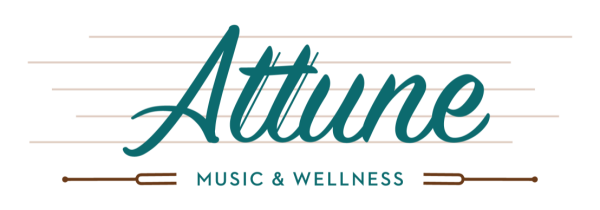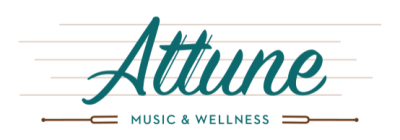Providing space for authenticity & identity through music.
Music therapy is a fluid, organic process where the therapist and client expand wellness through intentional music experiences.
People are the experts of their own lives. At Attune Music & Wellness, the therapist and client explore, affirm, and become — TOGETHER.
To be a participant in music therapy requires no prior experience or formal training in music. The music therapy process is individualized and co-constructed to address your needs through the use of various musical experiences (i.e. songwriting, music improvisation, receptive music listening).
The purpose of music therapy is not to aim for musical perfection, but rather to promote holistic healing and acceptance of self.


